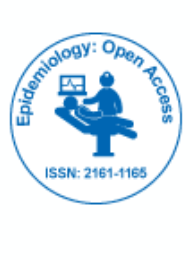Theme: "Challenges Experienced &Therapeutics Adopted for Diseases"
EPIDEMIOLOGY-2022
We cordially invite all researchers, students, and epidemiology professionals to attend this forthcoming epidemiology congress, where they will be able to participate in significant scientific conversations and contribute to future advances in the field of epidemiology and public health. The "10th World Congress on Epidemiology & Public Health," which will be held September 27-28, 2022 in Rome, Italy, will be open to anyone.
EPIDEMOLOGY-2022 will focus on the most recent and interesting developments in all aspects of epidemiology, providing a unique chance for all epidemiology specialists from across the world to connect, network, and learn about new scientific developments.
This symposium will feature workshops, unique keynote sessions, and distinguished and known speakers who are experts in the field of epidemiology. Topics will include: Methodological advancements, Using epidemiology to address public health issues around the world Precision prevention and screening, big data, data science, and connected data New developments in research designs, innovations in data collecting and measurement, such as wearable devices, new technology and methods for candidate recruitment and retention are all examples of causal thinking in epidemiology. Evidence-based medicine and clinical practice are two terms that are often used interchangeably. Epidemics and other global health emergencies, evidence-based health policy Inequities and social epidemiology Genetic and molecular epidemiology is a branch of epidemiology that studies the effects of genetic and mole Patient and public interest in epidemiological studies, climate change
EPIDEMOLOGY-2022 Conference will feature timely keynote addresses, oral presentations, poster presentations, delegate perspectives, board talks, workshops, and exhibitions. Join us for two days of intense and fascinating discussions on current challenges and new developments in epidemiology and public health. We welcome you to submit research abstracts, papers, and e-posters to participate to the event and help shape it. Also welcome for presentation at the conference are high-quality research presentations detailing original and unpublished results of conceptual, constructive, empirical, experimental, or theoretical work in all fields of public health research.
You will have the opportunity to connect with and learn from our Business Partners, Exhibitors, and Sponsors in addition to the informative speakers. You will also get the opportunity to speak with them and determine whether or not they may benefit our practices. Then there are the networking breaks, which provide us the opportunity to get to know our peers and learn from them.
This is your finest opportunity to access the largest assemblage of individuals from the Epidemiology community, with colleagues from all over the world engaged in learning about Epidemiology and its developments. This event will provide you with the opportunity to meet new people and expand your network, as well as the potential to collaborate with other colleges and research institutes. The EPIDEMOLOGY-2022 will address a wide range of topics in healthcare epidemiology, long-term care, research methodologies, clinical microbiology, patient safety and quality, implementation science, networking, and communication. It also allows you to network with specialists in the field, give presentations, distribute information, network with existing and aspiring scientists, create a splash with new Epidemiology findings, and gain name recognition at this event.
- Epidemiologists
- Basic Scientists
- Clinical Researchers
- Clinical Practitioners
- Public Health Specialists
- Public Health Consultants
- Anesthesiologists
- Nurses
- Pain Medicine Specialists
- Pharmacists
- Physical Therapists
- Physicians
- Professors
- Trainees and Students
Epidemiology's significance cannot be emphasized. Epidemiology saves lives and promotes long-term global health. Epidemiology's goals are to prevent and reverse unfavorable health consequences, and epidemiology's applications are especially relevant in communities that are poor or unstable. Epidemiology is a unique study since it categorizes disease distribution, causes underlying their source and cause, and techniques for their control. This necessitates a grasp of how political, social, and scientific elements interact to exacerbate disease risk. The field of epidemiology encompasses a wide range of scientific, ethical, and practical concepts and norms that apply to the planning, execution, analysis, and reporting of research on health-related issues in epidemiologic populations.
Epidemiology Associations:
- American College of Epidemiology (ACE)
- American Public Health Association (APHA)
- Association for Health and Environmental Development (AHED), Egypt
- Association of Chinese Epidemiology
- Australasian Epidemiological Association (AEA)
- Cameroon Directorate for Combating Disease, Epidemics and Pandemics
- Canadian Society for Epidemiology and Biostatistics (CSEB)
- Finnish Epidemiological Society (FES)
- French International Agency for Research on Cancer
- German Society for Epidemiology (DGEpi)
- Indian Association of Preventive and Social Medicine (IAPSM)
- Indian Public Health Association (IPHA)
Track 1: Novel Coronavirus
Coronavirus disease 2019 (COVID-19) is an illness caused by a novel coronavirus now known as severe acute respiratory syndrome coronavirus 2 (SARS-CoV-2; formerly known as 2019-nCoV), which was first identified in Wuhan City, Hubei Province, China, during an outbreak of respiratory illness. It was first reported to the World Health Organization (WHO) on December 31, 2019. When humans contract a coronavirus for the first time, it is frequently due to contact with an infected animal. Bats are one of the most common carriers, but they do not usually transmit coronaviruses directly to humans. Instead, the virus could spread through an intermediary animal, which is most often, but not always, a domestic animal.
Track 2: Epidemiology and Cancers
The study of the factors that influence cancer in order to deduce possible patterns and causes is known as cancer epidemiology. Cancer epidemiology is the study of using epidemiological approaches to determine the cause of cancer and to identify and create better treatments. This study's scope necessitates dealing with lead time and length time biases. Early diagnosis may artificially inflate cancer survival numbers without really improving the disease's natural history, according to the idea of lead time bias. The assumption that slower-growing, more indolent tumors are more likely to be detected by screening tests is known as length bias. However, improvements in diagnosing more cases of indolent cancer may not translate into better patient outcomes after the use of screening techniques.
Track 3: Epidemiology and Biostatistics
Epidemiologists will frequently specialize in the source of diseases and the different factors that contribute to population health problems. Meanwhile, biostatisticians characteristically specialize in the effects of health issues, for example, the implications of genetics, the environment or biological factors. Statistics enlightens many decisions in epidemiologic study design and statistical tools are used widely to study the association between risk factors and health outcomes. The disciplines of epidemiology and biostatistics are essential to achieving the goals of public health, and combining these two disciplines in a single department creates synergies for both training and research. Epidemiologists study the dissemination and determinants of health and disease in populations. Biostatisticians improve and apply statistical theory, methods and procedures to public health research data and the planning, implementation and evaluation of public health programs.
Track 4: Epidemiology and Sociology
Social epidemiology is a branch of epidemiology that focuses on the impact of social-structural factors on health outcomes. The distribution of advantages and disadvantages in a society mirrors the distribution of health and sickness, according to social epidemiology. It aims to uncover and comprehend the sociocultural factors that influence the pattern of disease and health distribution in a society. What effect do social factors have on individual and population health? This is the central and first issue of social epidemiology to be answered. The new attention on this issue using modern epidemiological methodologies, on the other hand, is a relatively new occurrence.
Track 5: Epidemiology and Public Health Nursing
As a nurse epidemiologist, she is responsible for ensuring that patients receive the best possible treatment while also minimizing the risk of infection. They will also concentrate on preventative techniques, infection control, and direct patient nursing. One public health nurse or a group of public health nurses working together can provide public health nursing services. Public health nurses are intimately involved in the inter-disciplinary activities of the basic public health duties of evaluation, assurance, and policy formation in both of these cases. Public health nurses are well-versed in a wide range of engagement techniques, including those that apply to the general population, the family, and the individual. Through focused interventions, programmers, and advocacy, public health nurses apply information from the health and social sciences to individuals and demographic groups.
Track 6: Epidemiology and Environmental Health
Environmental epidemiology is a branch of epidemiology that studies how environmental factors affect human health. This discipline studies how a variety of external risk factors might predispose to or protect against disease, illness, injury, developmental anomalies, and mortality. These factors may or may not be present in the contexts in which people live, work, and play. According to the World Health Organization's European Centre for Environment and Health (WHO-ECEH), preventable environmental exposures cause 1.4 million fatalities per year in Europe alone. Chemicals, physical agents, and microbiological pathogens are examples of proximate environmental exposures, which include chemicals, physical agents, and microbiological pathogens, and those that are distal (e.g., indirectly leading to a health condition), such as socioeconomic situations.
Track 7: Genetic Epidemiology
Genetic epidemiology is the study of how genes and environmental factors interact to influence human traits, health, and disease. With conceptual and methodological contributions from epidemiology, genetic epidemiology grew out of population genetics, namely human quantitative genetics. All diseases, whether mutual and complex or ostensibly simpler, such as so-called monogenic (single-gene) disorders, are included in modern genetic epidemiology. Many advances in the epidemiology of genetic diseases have concerned hereditary problems that appear to be straightforward (e.g., cystic fibrosis, sickle cell disease). Hereditary epidemiology involves a range of facets of epidemiology, including investigations of prevalence, clinical epidemiology, genotype-phenotype connections, and illness development and outcomes, in addition to the general focus on genetic disease.
Track 8: Women and Child Health
Maternal health refers to women's health and well-being throughout their lives, particularly during pregnancy, childbirth, and child rearing. Despite the fact that maternity is seen as a rewarding natural experience that is sensitive to the mother, WHO has stated that a large majority of women face numerous challenges, including health problems and even death (WHO n.p) As a result, there is a pressing need to invest in women's health (Amiri and Ulf-G 13). Subsidizing healthcare costs, maternal health education, encouraging good family planning, and assuring progressive check-ups on the health of women with children are just a few of the ways the investment can be made.
Track 9: Public Health Nutrition
Public Health Nutrition (PHN) focuses on improving people's health via nutrition and preventing nutrition-related illness in the general population. Nutritionists in public health make it easy for individuals to be active and eat well. They know how to turn research into voluntary food and nutrition programmers, policies, systems, and environmental change methods that improve the environment and encourage healthy choices. According to the World Health Organization, public health refers to all systematic (public or private) actions taken to prevent disease, enhance health, and extend life in the general population. Its efforts are aimed at creating conditions that allow people to be healthy, and it focuses on entire communities rather than single individuals or diseases. As a result, public health is concerned about the entire system.
Track 10: Emergency Management
Emergency management is the organization and administration of the resources and duties for dealing with all humanitarian characteristics of emergencies (preparedness, response, mitigation, and recovery). The goal is to diminish the harmful effects of all hazards, including disasters.
The World Health Organization outlines an emergency as the state in which usual procedures are interrupted, and instant measures (management) need to be taken to prevent it from becoming a disaster, which is even harder to recover from. This comprises the congregation, management, and analysis of big data for the purpose of integrating a data-driven tactic into each segment of the emergency management cycle .
Track 11: Epidemiology & Infectious diseases
Infectious diseases continue to have a major impact on the health of communities around the globe from the world HIV and tuberculosis (TB) epidemics, to the threat of resistant bacteria, to the challenge of emerging and newly identified pathogens. All compel the need for new ways to detect such pathogens, to understand their pathogenesis, and to devise effective interventions for their prevention and control. Infectious Disease Epidemiology collections of domestic and global works on the epidemiology of emerging and re-emerging infections, world infectious disease threats, disease surveillance, disease detection, vaccines development and other methods of prevention, various clinical trials, and the effect of infectious pathogens in the pathogenesis of chronic non-communicable diseases, like cancer and cardiovascular diseases.
Track 12: Cardiovascular Epidemiology
Cardiovascular diseases is the situation that affect your heart and blood vessels. Without suitable treatment, cardiovascular disease can lead to strokes or heart attacks. You can make lifestyle changes or take medications to be in charge of cardiovascular disease. The current vision of cardiovascular epidemiology point up an ecological approach that incorporates the full range of biological, environmental, and social determinants of cardiovascular health across the life course. Major advances in the cardiovascular epidemiology over the last 4 decades have increased our understanding of the pathogenesis of CVD, with the identification and treatment of several major risk factors.
Track 13: Disease Control Epidemiology
The Epidemiology and Infection Control Unit utilizes epidemiological systems to screen and control transferable illnesses. The study of disease transmission is the instrument to find the explanation behind the wellbeing ailments occurring in masses. The people group of corrupted people were investigated. It is portrayed as the deliberate consider of maladies and its control. It consolidates consider of scattering and affirmation of hazard parts identified with prosperity in a people and the convincing measure.
Track 14: Primary Health Care
The general practice is one of the clinical practices, where the social insurance proficient treats the ceaseless and serious ailment and gives preventive consideration and prosperity guidance to the patients. What's more, fundamental consideration is the prosperity care given to the accumulate of people or network in some time as of late moving nearer to the helpful master or the centre. Basic consideration and general practice are the prior measures taken some time as of late start the treatment.
Track 15: Veterinary Epidemiology
Humans are in close association with their pets and other animals (e.g., local wildlife and animals on a farm). Veterinary epidemiology, like human epidemiology, looks at the association between adverse effects and a selected potential ‘cause’ of interest, such as exposure to a chemical or a disease agent. For example, veterinary epidemiology can play a key role in emerging and global disease outbreaks, helping in the understanding and prevention of infections and other emerging diseases, including those transmitted from an animal to other animals, and those possibly transmitted from animals to humans
The global economic growth in 2019 is 3.0%, with emerging market growth of 4.6% and developed market showing expansion of 2.0%. All the countries undergo significant divergence in healthcare per capita in 2019. Many markets like Argentina, Iran, Mexico and Turkey are showing market risk in 2019 where as the expenditure per capita are high in China and Latin America with qualitative health care systems and high market revenue. A country has to make many establishments to form a base line for global economic performance and stable healthcare conditions such as by establishing health care policies, maintaining political issues and industrial growth. The global health care expenditure in 2017 was USD $7.724 and in 2022 it will be USD $10.059(EST.). North America USD $4.175, Western Europe USD $2.279, Asia & Australia USD $2.427, Latin America USD $437, Middle East & Africa USD $279 and Transition Economics USD $239.
Epidemiology Summit 2022 welcomes all the researchers, associations, exhibitors and attendees from all over the world to Singapore. Singapore is the country that is rapidly evolving social progress and economy due to which the milestones of healthcare have been achieved in very short period. It has a widespread system of healthcare.
In the year 2000, World Health Organization has ranked Singapore as 6th position regarding world’s health systems. For analyzing the data of epidemiology, various tools like mortality data, disease incidences tec. will be utilized. This assists in the assessments of various disease occurrences.
Delve Insight is a leading Business Consultant and Market Research Firm which has become the knowledge partner for biotechnology and pharmaceutical companies by providing competitive intelligence information which aids them to strategize and discover the target areas & potential customers for their products. The database of Delve Insight currently has over 3000 reports which elaborate the domains of Indication Insight, Mechanism of Action, Drug Insights and API Insights.
Conference Highlights
- Track 1: Novel Coronavirus
- Track 2: Epidemiology and Cancers
- Track 3: Epidemiology and Biostatistics
- Track 4: Epidemiology and Sociology
- Track 5: Epidemiology and Public Health Nursing
- Track 6: Epidemiology and Environmental Health
- Track 7: Genetic Epidemiology
- Track 8: Women and Child Health
- Track 9: Public Health Nutrition
- Track 10: Emergency Management
- Track 11: Epidemiology & Infectious diseases
- Track 12: Cardiovascular Epidemiology
- Track 13: Disease Control Epidemiology
- Track 14: Primary Health Care
- Track 15: Veterinary Epidemiology
To share your views and research, please click here to register for the Conference.
To Collaborate Scientific Professionals around the World
| Conference Date | September 27-28, 2022 | ||
| Sponsors & Exhibitors |
|
||
| Speaker Opportunity Closed | |||
| Poster Opportunity Closed | Click Here to View | ||
Useful Links
Special Issues
All accepted abstracts will be published in respective Our International Journals.
Abstracts will be provided with Digital Object Identifier by












